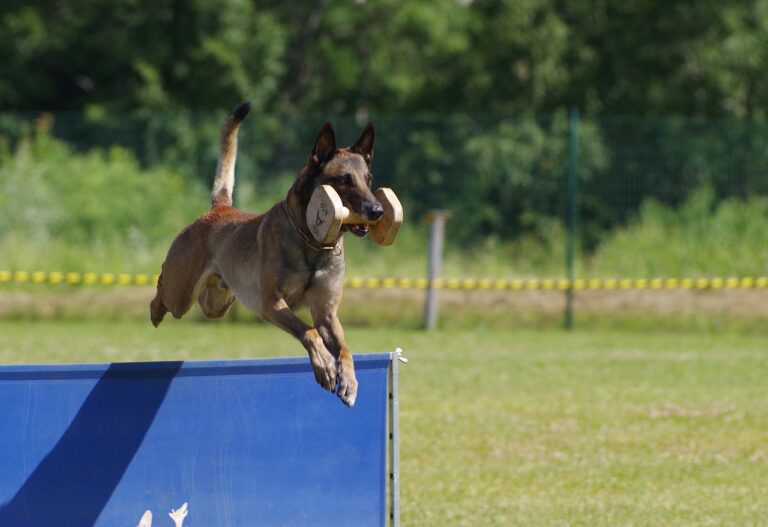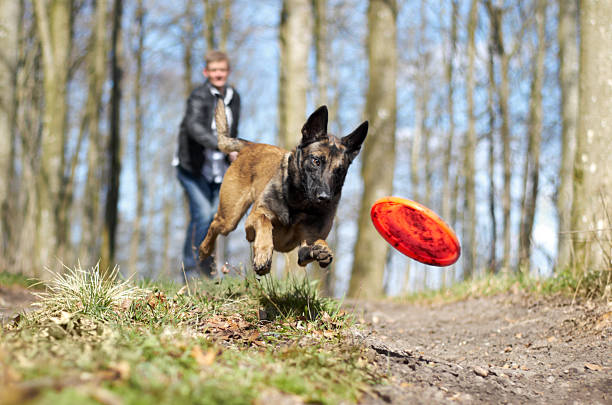The Genius Within: Revealing the Unique Intelligence of German Shepherds
The German Shepherd Breed
If you’re considering adding a German Shepherd to your family, you’re in for a loyal and intelligent companion. German Shepherds are one of the most popular dog breeds worldwide, known for their remarkable intelligence and versatility. In this section, we will introduce you to German Shepherds, discuss their popularity, and explore their unique intelligence.
Introduction to German Shepherds
German Shepherds, also known as Alsatians, are a breed that originated in Germany in the late 19th century. They were initially developed for herding and guarding livestock, but their exceptional intelligence and working abilities quickly gained recognition in various fields.
These medium to large-sized dogs are characterized by their strong build, confident demeanor, and distinctive black and tan or black and red coat. German Shepherds have a noble appearance and an alert expression that reflects their intelligence and attentiveness.
The Popularity of German Shepherds
German Shepherds have consistently been among the most popular dog breeds globally for many years. Their versatility and intelligence make them suitable for various roles, including family pets, working dogs, and service animals. Their loyalty, protective nature, and trainability have endeared them to countless individuals and families.
German Shepherds are often chosen for roles in law enforcement, search and rescue operations, and as service or therapy dogs. Their ability to quickly learn and adapt to new tasks, combined with their strong work ethic, makes them invaluable in these demanding fields.
Understanding Their Unique Intelligence
German Shepherds are renowned for their exceptional intelligence. They possess a remarkable ability to understand and follow commands, making them highly trainable. Their intelligence is not limited to obedience training; they are also adept at problem-solving and can quickly adapt to changing situations.
One of the factors that contribute to their intelligence is their keen sense of observation. German Shepherds are highly perceptive and have a natural inclination to assess their surroundings. This attribute, combined with their strong instincts, enables them to excel in various roles and tasks.
German Shepherds’ intelligence is not only measured by their ability to learn and perform tasks but also by their emotional intelligence. They have a deep understanding of human emotions and can form strong bonds with their owners. This emotional connection, along with their intelligence, makes them highly responsive and attuned to their human companions’ needs.
Understanding the unique intelligence of German Shepherds is essential when it comes to training, socializing, and nurturing their mental well-being. By providing them with appropriate mental stimulation, training, and positive reinforcement, you can help channel their intelligence in a constructive and fulfilling manner.
In the next sections, we will delve deeper into the characteristics of German Shepherd intelligence, their working roles, and how to nurture their intelligence through mental stimulation, training, and bonding. So, let’s explore the fascinating world of German Shepherds and unlock the genius within these remarkable dogs.
Characteristics of German Shepherd Intelligence
German Shepherds are renowned for their unique intelligence, which sets them apart from many other dog breeds. Understanding the distinctive characteristics of their intelligence can help you appreciate and nurture their mental abilities. Here are three key aspects of German Shepherd intelligence: adaptive learning, problem-solving skills, and trainability and obedience.
Adaptive Learning
German Shepherds possess exceptional adaptive learning capabilities, allowing them to quickly understand and respond to new situations. They have a remarkable ability to observe and assess their environment, making them highly adaptable to various scenarios.
When faced with new challenges or tasks, German Shepherds can quickly analyze the situation and adjust their behavior accordingly. This adaptability makes them excellent candidates for training and enables them to excel in various working roles, such as police and military work, search and rescue operations, and service and therapy dog duties.
Problem-Solving Skills
German Shepherds have an innate problem-solving instinct. They are highly skilled at finding solutions to complex tasks or puzzles. This problem-solving ability is closely tied to their intelligence and drive to work and please their owners.
German Shepherds possess exceptional cognitive abilities, allowing them to analyze problems, think critically, and come up with innovative solutions. This makes them well-suited for tasks that require problem-solving skills, such as search and rescue missions or navigating challenging training exercises.
Trainability and Obedience
One of the most remarkable aspects of German Shepherd intelligence is their trainability and obedience. They have an inherent desire to please their owners and excel in training sessions. German Shepherds are known for their ability to quickly grasp commands and respond with precision.
Their high trainability stems from their intelligence, eagerness to learn, and loyalty. German Shepherds thrive in structured training environments where they can engage their minds and channel their energy effectively. Consistent, positive reinforcement-based training methods work best for these intelligent dogs.
German Shepherds’ trainability and obedience make them a popular choice for various working roles and competitive sports. Their ability to quickly learn and execute commands allows them to excel in tasks that require obedience, agility, and precision.
Understanding the unique intelligence of German Shepherds can help you appreciate their exceptional abilities and tailor your approach to their training and mental stimulation. By providing them with a stimulating environment, structured training sessions, and opportunities to problem-solve, you can nurture their intelligence and help them thrive. For more information on training challenges and solutions for German Shepherds, check out our article on training challenges and solutions for German Shepherds.
Working Roles for German Shepherds
German Shepherds are renowned for their intelligence, versatility, and trainability, which make them well-suited for various working roles. Their unique combination of skills and temperament has made them invaluable in several fields. Let’s explore some of the prominent working roles that German Shepherds excel in.
Police and Military Work
German Shepherds have a long history of serving in law enforcement and military agencies around the world. Their exceptional intelligence, agility, and loyalty make them ideal for these demanding roles. German Shepherds are trained for tasks such as tracking suspects, apprehending criminals, detecting drugs or explosives, and providing assistance in search operations. Their keen sense of smell, strong protective instincts, and unwavering focus enable them to excel in high-pressure situations. German Shepherds play an integral part in maintaining public safety and security.
Search and Rescue Operations
German Shepherds have proven to be invaluable assets in search and rescue operations. Their acute sense of smell, agility, and endurance make them well-suited for locating missing persons in various terrains and conditions. German Shepherds can track scent trails, search large areas, and locate individuals who may be trapped or lost. Their intelligence and ability to follow commands make them highly effective working partners for search and rescue teams. German Shepherds have saved countless lives through their dedication and skills in these critical operations.
Service and Therapy Dogs
German Shepherds also excel in the roles of service and therapy dogs. Their intelligence, adaptability, and gentle nature make them ideal companions for individuals with disabilities or special needs. German Shepherds can be trained to assist with tasks such as guiding the visually impaired, alerting to seizures, providing mobility support, and offering emotional support. Their calm and empathetic demeanor makes them well-suited for therapy work, where they provide comfort and companionship to individuals in hospitals, nursing homes, and other therapeutic settings.
By harnessing their unique intelligence and abilities, German Shepherds contribute significantly to various working roles. Whether it’s serving alongside law enforcement and military personnel, aiding in search and rescue operations, or providing assistance and support to individuals in need, German Shepherds consistently demonstrate their exceptional skills and unwavering dedication.
If you’re interested in learning more about the German Shepherd breed, be sure to explore our other articles on topics such as raising a German Shepherd in an apartment, German Shepherd health guide, and training challenges and solutions for German Shepherds.
Nurturing Your German Shepherd’s Intelligence
To help your German Shepherd reach their full potential, it’s important to provide them with the right environment and opportunities for mental stimulation and enrichment. Here are three key aspects to consider when nurturing your German Shepherd’s intelligence: mental stimulation and enrichment, training and socialization, and bonding and positive reinforcement.
Mental Stimulation and Enrichment
German Shepherds are highly intelligent dogs that require mental stimulation to prevent boredom and promote overall well-being. Engaging their minds with various activities helps channel their intelligence in a positive direction. Here are some ways to provide mental stimulation for your German Shepherd:
- Puzzle toys: Invest in interactive toys that challenge your dog’s problem-solving skills. These toys often require your dog to figure out how to access treats or solve a puzzle to retrieve a reward.
- Nose work: Engage your German Shepherd’s exceptional sense of smell by participating in nose work activities. Hide treats or toys around the house or play scent-based games that allow them to use their natural instinct to search and find.
- Training games: Incorporate training sessions into your daily routine. Teaching your German Shepherd new commands or tricks not only stimulates their mind but also strengthens the bond between you and your dog. Check out our article on training challenges and solutions for German Shepherds for more tips.
- Rotating toys: Regularly rotate your dog’s toys to keep their interest levels high. Introduce new toys or rotate them out of circulation for a while, allowing your German Shepherd to experience novelty and engage with different types of toys.
Training and Socialization
Training and socialization play a vital role in nurturing your German Shepherd’s intelligence. By providing consistent training and positive reinforcement, you can help them develop their problem-solving skills and enhance their overall obedience. Here’s how you can focus on training and socialization:
- Basic obedience training: Start with basic commands like sit, stay, and come. Gradually progress to more advanced training sessions, including off-leash training and recall commands.
- Socialization with people and dogs: Expose your German Shepherd to various situations, people, and other dogs from an early age. This helps them develop good social skills and become confident in different environments. Read our article on socializing German Shepherds: a guide for owners for more information.
- Advanced training: Once your German Shepherd has mastered basic commands, consider enrolling them in advanced training classes. This can include agility training, scent detection, or even competitive sports. Learn more about how to train a German Shepherd for competitive sports.
Bonding and Positive Reinforcement
Building a strong bond with your German Shepherd is essential for their overall well-being and intelligence development. Positive reinforcement is key to nurturing their intelligence and reinforcing good behavior. Here’s how you can bond with your German Shepherd and use positive reinforcement:
- Quality time: Spend quality time with your German Shepherd, engaging in activities they enjoy, such as walks, playtime, or training sessions. This strengthens the bond between you and helps them feel loved and valued.
- Rewards and praise: Use positive reinforcement techniques to reward your German Shepherd for good behavior and successful training sessions. Offer verbal praise, treats, or affection to reinforce their intelligence and encourage them to continue learning and performing well.
By focusing on mental stimulation, training, and bonding, you can nurture your German Shepherd’s unique intelligence and help them thrive. Remember to tailor the activities to suit your dog’s individual needs, and always prioritize their well-being and happiness.






